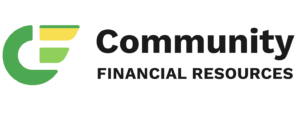
Expand Financial Inclusion For All
Imagine immigrating to America to seek a better life for your family. You strive for a better economic opportunity that will afford living expenses, obtain adequate housing, and achieve ambitions such as saving for your children’s education. We know that achieving these fundamental economic goals, which many of us take for granted, requires integration into the US financial system. However, without a US Social Security Number (SSN), nor eligibility to receive one, immigrants find basic banking services either difficult or expensive to obtain.
It’s no surprise that immigrants to the US often find bank relationships costly or simply unavailable, turning to payday lenders, check cashiers and other alternative financial providers that are often disadvantageous. In California, for example, 2.9 million immigrants are unbanked or underbanked (those with a bank account yet still exposed to high-cost alternatives) with 22% US born, 24% foreign born citizens, and 44% foreign born non-citizens. The irony is that many pay US Federal income taxes but have limited access to safe, low-cost basic banking services.
Many individuals are required to have a US taxpayer identification number but don’t have — or are not eligible to obtain an SSN. The IRS issues Individual Taxpayer Identification Numbers (ITINs) for many reasons but are most often used for a non-resident filing a US Federal tax return. ITINs are also issued to US residents filing a US tax return, as well as dependents or spouses of a US citizen/resident or non-resident visa holder. The immigration status and tax status for these individuals could be different. For example, foreign nationals can be considered non-residents for immigration purposes, but residents for tax purposes depending on how long they have resided in the US.
Those with SSNs take for granted the basic banking services available to them, whether they be checking accounts or savings accounts, credit or debit cards, access to ATMs, or small business and home loans. For nearly 20 years, my organization, Community Financial Resources (CFR), has provided financial solutions for low income and low-wealth communities. We’ve seen the disparity in economic equality and the challenges to achieving financial stability. We also know the importance of a safe, low-cost bank transaction account as a pathway to store, spend and save, then progress to establish and/or build credit so that individuals can apply for a loan to start a business or buy a home. This ‘scaffolding’ approach to accessible banking services provides the continuity for the unbanked/underbanked to integrate into the US economic system to establish financial stability, and ultimately mobility.
We have advocated for over a decade that the US banking industry expand its services to include ITINs, providing them the same access to affordable banking services as others. Today, only a few financial institutions allow ITIN holders to open a bank account online. There are nuances to banking an ITIN such as the process called KYC (“Know Your Customer”) and other validation steps required of banks to make sure customers are properly identified and suitable for certain banking services. However, this is a normal process for ALL new customers.
It’s important to have a practical view of the marketplace. Banks must balance business profit and customer growth with achieving their CRA (Community Reinvestment Act) mandates. Community-based organizations (CBOs) serving low income and low-wealth communities often expect services and pricing that banks may not be able to offer profitably. Fortunately, we are now seeing increased engagement between banks and CBOs to bridge this gap. There is a realization that banks can provide profitable services to this underserved market in an equitable way.
If the COVID cycle highlighted a positive for us, it was a wake-up call to those not embedded in the financial inclusion/well-being space that many residents are financially vulnerable. As a result, financial inclusion is evolving in a positive direction. Banks are realizing a growing market opportunity with immigrants, foreign nationals, and others who are unbanked or underbanked.
At CFR, we partner with a large national bank that provides ITIN individuals with a payroll/debit card and a linked savings account, no monthly or penalty fees, no minimum balance required, and no ChexSystem or credit review. We also partner with a national credit union that provides undocumented individuals — without an SSN or an ITIN — an option to open a savings account online. There is a progression of other banks and financial institutions offering loan products and savings accounts to ITIN individuals. This is an encouraging trend, giving this underserved market choices in basic banking services to gain comfort and confidence with a banking relationship — and ultimately build financial stability.
The key is greater collaboration between banks and CBO’s who serve those who are financially vulnerable. Working in tandem will result in a thoughtful approach to serve the unbanked or underbanked communities with services that are both reasonable for the banks and supportive of financial wellness for those in need. We have the same goal in mind — affordable and quality financial services that help individuals and families improve their financial situation and become long-term customers.
Parisa Esmaili is Executive Director of Community Financial Resources, a national non-profit that provides a pathway to economic security through financial products, tools and services for low-income and low-wealth households, with a focus on communities of color.




